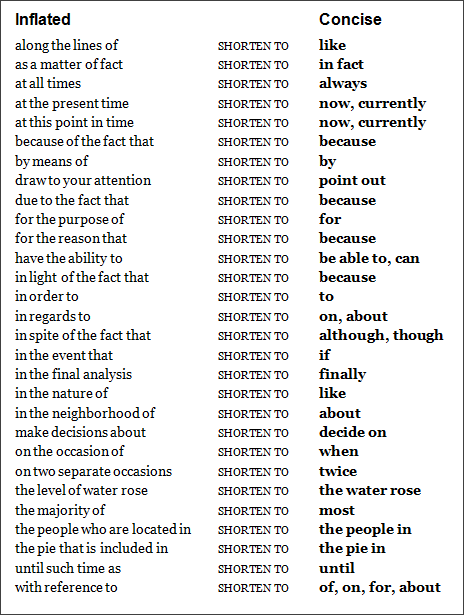Like perfume, the smallest application of adverbs is plenty.
- “The road to hell is paved with adverbs.” ~ Stephen King
- “Adverbs are the tool of the lazy writer.” ~ Mark Twain
- “In order to write good stuff you have to hate adverbs.” ~ Theodore Roethke
- “… the beastly adverb – far more damaging to a writer than an adjective.” ~ Graham Greene
- “It’s an adverb, Sam. It’s a lazy tool of a weak mind.” ~ Casey Schuler in Outbreak.
So, What Is an Adverb Anyway?
The name implies, “adverbs” modify verbs, i.e. add + verb = adverb. Adverbs also modify adjectives, other adverbs, phrases, clauses, and whole sentences. Adverbs can modify just about anything in a sentence – except a noun.
Because there are almost as many adverb types as planets in our solar system, I narrowed the scope of this discussion to those adverbs that end in –ly. This includes adverbs like airily, basically, blissfully, convincingly, drowsily, flirtatiously, harshly, horribly, lovingly, quickly, restlessly, shrewdly, smilingly … like that. (For an extensive list of 3732 adverbs, go here.)
Since Adverbs are so Plentiful, Why are They Scorned?
For the fiction writer, their use of adverbs can mean the difference between a manuscript being published or getting tossed in the recycle bin. Why? Because adverbs are weak, especially those that end in –ly. Instead of adding depth, meaning, or action to a sentence, they slow it down. In fiction, adverbs can even make the reader feel insulted, rather like the author is inserting himself into the story to TELL the reader “how it is being done” or “what this really means.”
Good writers (e.g. tight writers) find the right verb, a strong verb, that will SHOW the reader what is going on. Like a magnet, strong verbs pull the reader into the story, making him or her a part of the drama. Adverbs can’t do that.
Strong Verbs: The Sign of Good Writing
The preferred method for conveying meaning, depth or activity in a sentence is by using a strong, fitting, effective verb. Sentences that contain well-chosen, action-packed, meaning-laden verbs don’t need adverbs.
One strong verb does a much better job of helping readers feel the action or meaning than a whole cosmos of adverbs. Case in point: which of the following sentences feels stronger:
1. Little Anthony ran quickly across the field.
2. Little Anthony sprinted across the field.
The second one, right? The second sentence can be summed up in two words: Anthony + sprinted. Readers have to work at visualizing the action in the first sentence, while in the second sentence, the action flows.
Here’s another example:
When the mouse slowly walked from behind the bookcase, the cat swiftly ran after it.
Yawn. See how the writer used adverbs to pump up the wimpy verbs (walk and run).
Let’s rewrite that sentence with stronger verbs:
When the mouse crept from behind the bookcase, the cat sprang after it.
See the difference? Feel the difference? Descriptive verbs pull in your readers, making them want to read what happens next, and what happens after that.
Tight Writers Show More Action with Fewer Words
Successful writers look high and low until they find the right verb that conveys the right emotion or elicits the right visualization for their readers. Good writers search for that perfect verb to convey their meaning, because the perfect verb says it all and does not need a modifier.
Many successful (i.e. published, best-selling) writers admit that as they improved their writing skills, they learned how to write with fewer adverbs.
Back to the Perfume Analogy
As a contract technical writer I often work on client sites. Along with my temporary badge, I’m handed an instruction sheet that lists “appropriate attire” and “acceptable behavior” for this workplace – like no shorts, no sandals, no halter tops, and no perfume. The first time I saw the “no perfume” restriction, I was surprised. Dabbing on a bit of perfume had always been part of my morning ritual, and now I had to leave that part out.
“Leaving that part out” is what writers need to do if they want to win writing contests, get published, and have readers who just “love” their writing. This is what successful writers learn to do with -ly adverbs: They learn to leave them out.
How Do You “Leave Them Out”?
You might be wondering how you are going to write descriptive prose if you don’t use adverbs. Find stronger verbs.
Here’s an action sentence with an adverb:
With that, Louise vehemently walked out of the room.
What’s the verb in that sentence? Walk, a mundane verb if there ever was one.
Action sentence without an adverb:
With that, Louise stamped out of the room.
With a verb like “stamp” to show how Louise left the room, the sentence doesn’t need or want an adverb. “She stamped” conveys all the mood required.
Never Use Adverbs?
I’m not advocating that you never, ever use adverbs. Just don’t use them often. Sometimes you can’t help but use an adverb because no amount of verb hunting gets you where you want to go. If you try to get around an -ly adverb and can’t, then go ahead, leave it in.
Just remember: According to many writing teachers, a good rule of thumb for adverb use in adult fiction is about one per chapter. According to some editors, one adverb per every 100 pages is about right.
Next time, more tips on writing without adverbs.
[Note: I realize that the title of this post contains one of the worst adverbs - very. This was intentional. ![]() ]
]
Happy Writing!
Ann
(c) March 12, 2012





